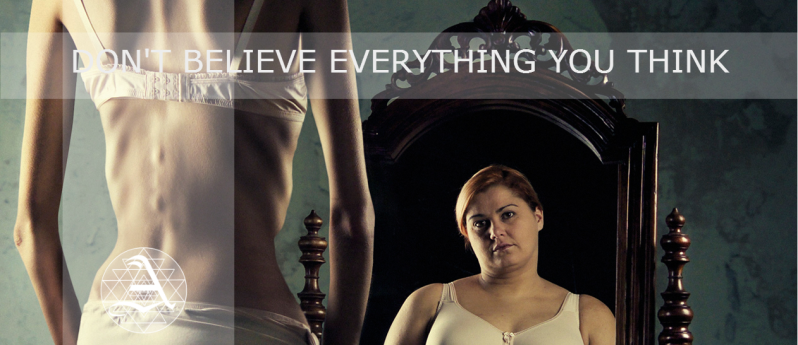“Dreams of gold; Heart of lead
Riches untold; Lust most dread
Tongue whetting lips; Fingers a flurry
Expectations; Born of worry
Lead to gold; The alchemist’s greed
Heart is cold; Empathy recedes
Old age accomplished; And nothing more
The mind is not changed; Heart left impure
Not lead to gold; Should be our strife
But transmute the mind; Transmute life”
When I mention the ancient practice of alchemy, where does your mind go? Likely to a dungeon-like laboratory filled with vials, beakers, cylinders and all the myriad apparatus of chemical experimentation, all boiling and steaming and full of liquids of various colors and viscosities. Most likely you’ll think of the ancient practice of transmuting “base” metal, such as lead, into “noble” metal, such as gold; a pursuit that drove men mad and turned entire nations upside down with gold-fever.
When I talk about alchemy, however, I am referring to different pursuit; one only alluded to by the concept of elevating “base” things to a higher state.
What do you see when you look in the mirror? What thoughts come to your mind about that person in front of you?
How can someone be so fat?
I’ll never be as fit as her/him.
No one could possibly love my crater-face.
Why does nothing ever come easily to me? Except failure. Failure comes so naturally to me.
No wonder she left me.
No wonder he never called.
Why do nice guys like me always finish last?
I’m weak.
I’m powerless.
I’m worthless.
What’s the point?
Why do I even exist?
Our thoughts and beliefs about ourselves are crucial to how our reality works. Just as a person afflicted with color-blindness may see the color green where another person sees the color red, a person who believes that they are a failure will see themselves as a failure no matter how much another person may try to convince them that they are not. This person will only identify the failures that have occurred in their life. No matter what successes may occur, they will go through life feeling as though failure follows them wherever they go. Such a person may not put their whole heart or effort into an endeavor because they feel they are doomed to fail no matter what they try. On the other hand, successes seem few and far between. They are hard fought to the point of exhaustion or seem to require the intervention of another person. They are ultimately unsatisfying and tend to be lost in the crush of the everyday failure that seems to plague such a person. This person, if they believe themselves to be a failure, will always be a failure in the mind of the only person whose opinion matters: themselves.
These thoughts; these silent, internal agreements that you’ve made with yourself about your reality, are what all of your behavior and all of the results you are getting in life stem from.
But where do these beliefs come from? How are these agreements with ourselves made? The answer lies deep within our biology. Humans are what we could call “meaning-makers.” This means that we learn things from every experience we have and make assumptions about what we can expect in the future based on what we’ve learned. For early humans, this was essential to the survival and eventual success of the race. One had to know, for instance, that if a certain berry made one sick, that it was going to do so again the next time it was eaten. As a race, we look for patterns and associations, anything that can help us make better assumptions about our reality and keep us one step ahead of doom.
The same is true of social situations. As human society evolved, we learned to figure out and make meaning of what other humans thought of us. From learning when the posturing of a territorial enemy meant a mortal battle was coming, to the intricacies of court politics, we learned early on that what others think about us could be as essential to our survival as what berries to eat, or not to eat.
If we, as a race, are “meaning-makers,” learning from every experience what we can likely expect from the next, then it makes perfect sense that when you fail at an activity, you would be less than enthusiastic to try it again. In fact, if the failure was particularly grave or frequent, you might even just agree with yourself that you are simply a failure of a person. Such a belief would definitely make life simpler, since it explains why you don’t get the things you want and it means you don’t have to try anymore. Of course, even when you do succeed, you barely notice it. You’ve already agreed with yourself that you’re a failure and have likely gone through life gathering a wealth of evidence – patterns and associations – to back that up.
The same occurs with any belief we make about ourselves and our reality:
I am unlovable.
I am fat.
I am a disappointment.
I am my job: my results and my paycheck are what define my worth.
I am an addict.
I am unatractive.
I am incapable of being anything but poor.
I am powerless.
In every case, our thoughts shape our reality and all of our actions and behaviors within it. And that determines the results we get out of life. The results we get will only ever be those that fit within the framework of our beliefs about reality. What results do you want?
To get in shape? To succeed in work, family, or love? How about to gain confidence? Or belief in yourself that you have the power to gain the life you want? How about peace? Happiness? True, sincere, lasting happiness?
Only lead can come from lead. If your beliefs about yourself are on a lead-like level, only lead-like results can be gained. The secret is to transmute your thoughts, beliefs and actions into golden versions of themselves. Then you’ll be able to gain golden results.
As this blog series evolves, we’ll be exploring the methodologies and principles of changing your beliefs about yourself and your limiting behaviors to become more happy. We’ll be guided by the beautiful, poetic analogies we find in the ancient practice of alchemy. We will discuss the history of thought and principles derived from the minds and works of the greatest philosophers, spiritualists, and scientists of all time. Ultimately, we will gain together a mastery of the transmutation of thoughts, beliefs, and behaviors. We will learn the transmutation of life from limiting to empowering; sorrow and depression to joy; failure to success; fear to peace. We’ll transform our life from its current state to a state of true, lasting happiness. In short, together we’ll discover how to turn lead into gold.



The first thing I thought of was The Alchemists by Paul Coelho. Amazing read of which I devoured 11 years ago on a beach on my honeymoon. I send a lot time discussing and pondering the power of our communication with ourselves. I believe it is the key element in our ability to be happy and have a rewarding life. Glad to have stumbled across your blog today.
LikeLiked by 1 person
Thank you so much for giving it a read and for your feedback! We’re just getting started here, so it’s tremendous to hear that someone got some value out of our first post. As far as our communication with ourselves, I couldn’t agree more. The chatter of our self-talk is constantly happening in the background; in the dark of the unconscious. Shining a light on that and becoming an active, conscious participant in our own self-conversation is so key to our happiness. Thank you!
LikeLike